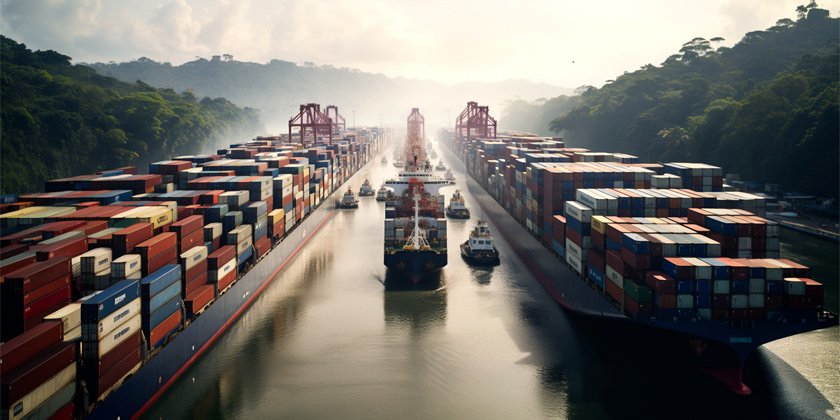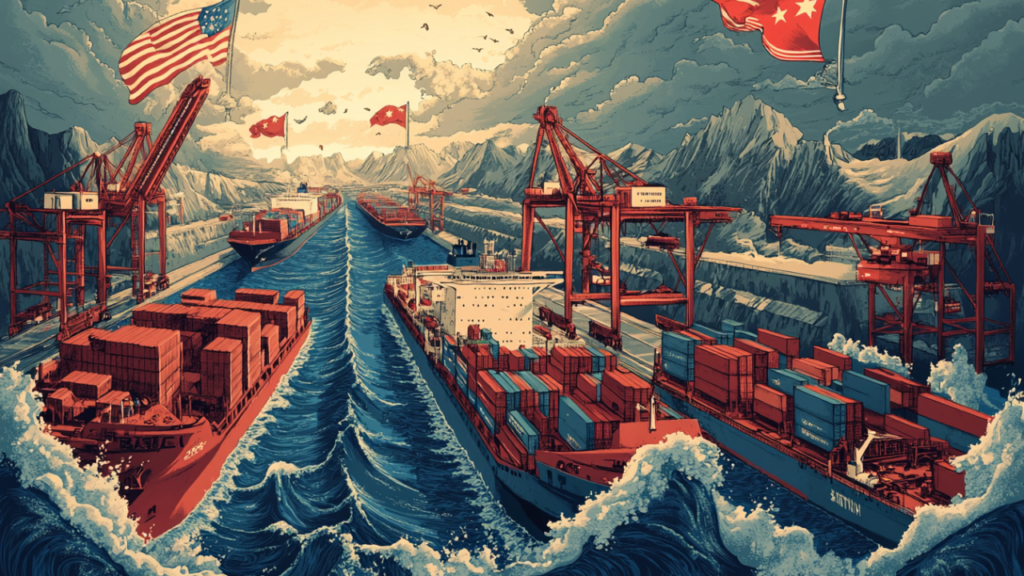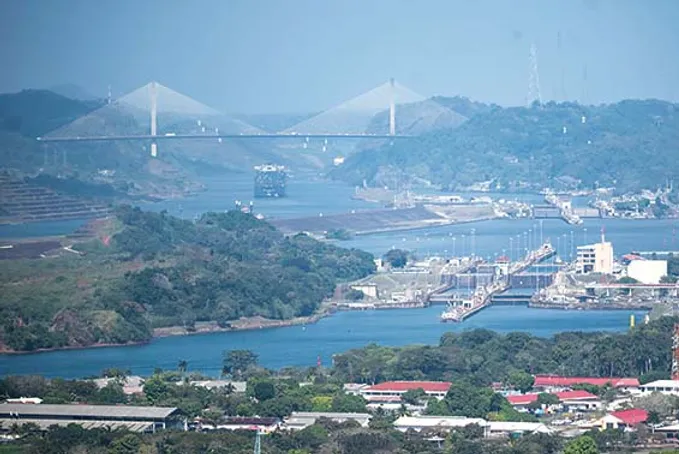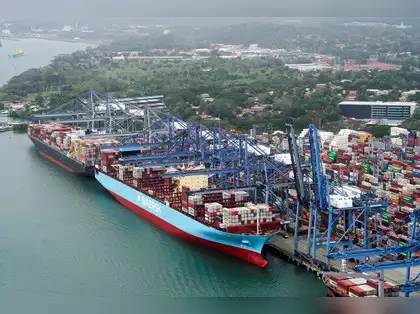In recent remarks, former U.S. President Donald Trump made headlines by praising the return of the Panama Canal to Panama in 1999, despite the fact that the event occurred over two decades ago. His comments, made during a political rally, were framed in the context of his broader nationalistic rhetoric about reclaiming lost American power and prestige. While Trump’s statements reignited debates on historical events, they also underscore his continuing influence on global perceptions, especially regarding the economic dynamics of regions like Latin America and Asia. As he draws attention to past victories such as the Panama Canal’s turnover, his remarks simultaneously bring the focus back to the shifting economic landscapes of strategic global regions.
The Panama Canal: A Symbol of Global Power Dynamics
The Panama Canal, a marvel of engineering, was originally completed in 1914 and was a significant symbol of American geopolitical influence. For nearly a century, the United States controlled the canal, a crucial maritime passageway that connects the Atlantic and Pacific Oceans. However, in 1999, the United States transferred control of the canal to Panama as part of the Torrijos-Carter Treaties signed in 1977. This event was viewed as a significant shift in global power dynamics, with many in the U.S. seeing it as a loss of influence in a strategically important region.
Trump’s recent comments reflect a populist narrative that emphasizes the loss of American power in global affairs. By hailing the U.S. “giving away” the Panama Canal, Trump highlights a broader theme of reclaiming American strength on the world stage. His rhetoric taps into a sense of nostalgia for an era when the U.S. was seen as the dominant global superpower, and its reach extended far beyond its borders.
However, it’s crucial to note that the turnover of the Panama Canal did not necessarily signal a strategic loss. In fact, the canal’s return to Panama allowed the country to develop its own economic strength and infrastructure, while the U.S. maintained its influence through military presence in the region. The continued operation and expansion of the canal have benefitted global trade, with Panama becoming a critical player in international shipping. In this light, Trump’s comments may overlook the complexities of geopolitical cooperation and long-term benefits of peaceful transitions of control.
Hong Kong: Economic Stability on a Tightrope
While Trump’s statements reflect an outlook on historical U.S. actions, they also inadvertently shed light on the current economic challenges facing Hong Kong. The global financial hub, which has long enjoyed a unique position as a bridge between the East and West, finds itself walking a tightrope in today’s increasingly complex geopolitical landscape. Once a beacon of economic freedom, Hong Kong’s future is increasingly uncertain, especially in the wake of its integration into China.
For decades, Hong Kong’s status as a Special Administrative Region of China allowed it to operate under a separate legal and economic system, making it an attractive destination for international businesses. The region thrived due to its rule of law, low taxes, and open markets, attracting foreign investments and becoming a global financial powerhouse. However, in recent years, the political landscape in Hong Kong has shifted dramatically, especially after the imposition of the National Security Law by China in 2020. This law curtails many of the freedoms Hong Kong once enjoyed and has led to widespread protests and international criticism.
As the region grapples with its place within the larger context of Chinese sovereignty, Hong Kong’s business community is forced to balance its reliance on international markets with its need to align with Chinese policies. This delicate balancing act has left businesses in Hong Kong uncertain about their long-term future in the city. The recent wave of companies relocating their headquarters to other cities, such as Singapore, speaks volumes about the shifting dynamics in Hong Kong. While many businesses remain committed to maintaining their presence in the region, there is no doubt that Hong Kong’s status as a financial hub is facing increasing challenges.



Hong Kong Inc: Navigating the Path Forward
The concept of “Hong Kong Inc.” refers to the collective interests of Hong Kong’s businesses, investors, and financial institutions, which have long been a driving force behind the region’s economic success. However, as political tensions rise, Hong Kong Inc. is under significant strain. While the city’s unique business environment has allowed for considerable wealth creation, the erosion of certain freedoms and the tightening grip of Chinese influence have created an atmosphere of uncertainty.
For Hong Kong’s leaders, the challenge lies in preserving the city’s economic vibrancy while balancing political realities. Many are optimistic that Hong Kong can continue to maintain its competitive edge, leveraging its strategic location, advanced infrastructure, and strong financial services sector. However, the broader geopolitical landscape, including tensions between the U.S. and China, will inevitably affect Hong Kong’s future as a global economic player. Businesses in Hong Kong are faced with the reality of aligning their operations with Beijing’s priorities while trying to preserve their global outreach.
In this context, Hong Kong’s tightrope walk becomes ever more precarious. As the city continues to navigate this delicate balance, its economic trajectory will depend largely on how successfully it adapts to the changing political environment while ensuring that its core financial services remain attractive to global investors.
Conclusion: A Shared Story of Transition and Power
Trump’s remarks about the Panama Canal and the ongoing challenges faced by Hong Kong share a common thread of transitioning power and influence on the global stage. While the Panama Canal’s handover to Panama marked a shift in regional control, it also opened the door for economic development and new alliances. Similarly, Hong Kong’s journey through increasing Chinese control is not just about political changes but about the economic survival and adaptability of one of the world’s most important financial centers.
Both examples highlight how regions, whether they are symbolic of past American power or current geopolitical friction, must constantly adapt to global shifts. For Hong Kong, this means finding a way to thrive under new constraints, while for global observers, it emphasizes the importance of understanding historical context and navigating complex international relations in a world where power is constantly in flux.
FOLLOW:https://newsroom47.com/castrol-india-stock-rises-6-as-saudi-aramco-eyes/
Newsroom 47
